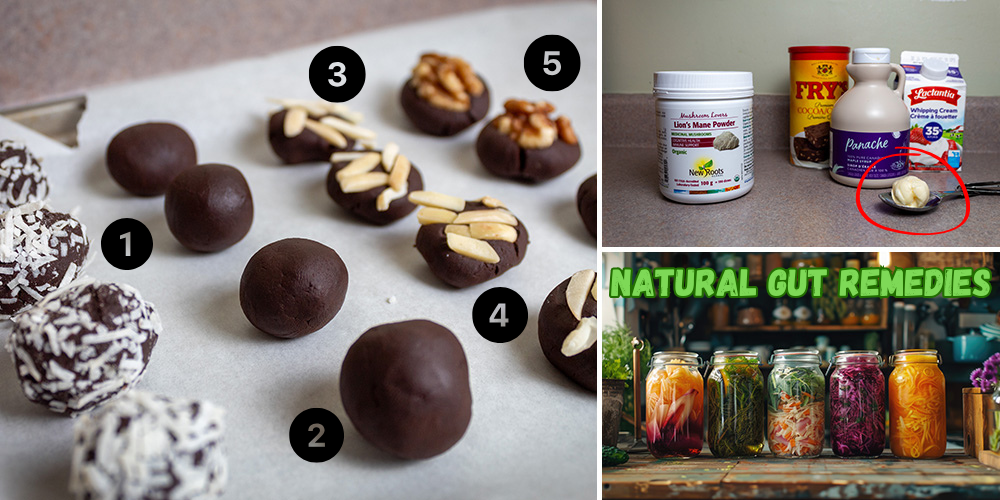
5 Weeds That Can Improve Your Gut Health
Do you ever find yourself sitting in a quiet room, unfortunately with other people, when the silence is broken by your digestive system screaming? Surely we have all been there, awkwardly. Thankfully, nature offers simple solutions—like the weeds that can Improve your gut health.
Your digestive system can scream for many reasons, maybe you ate something that isn’t settling properly, it could be irritable bowel syndrome, or it could be something more concerning.
Typically, the most immediate fix for an unhappy gut is to change some of the food and beverages you consume.
Unfortunately, for some, this is easier said than done since the foods that are causing the problems are also the food that causes those irresistible cravings that make it their favorite food choice.
Visiting your doctor is always something to consider when unhealthy symptoms last longer than usual. In addition to all of your options, there is one alternative that is highly recommended and has been for thousands of years.
Medicinal plants are the most trusted alternatives for health ailments and unwanted symptoms. Only in the last few hundred years has medicinal plants become an ‘alternative’, before it was the ‘only’ source of medicine.
This is what makes the weeds in your backyard and in the forest next to you so valuable and a trustworthy aid for your screaming guts.
Who Used These Weeds First?
I remember watching my grandmother effortlessly whip up remedies from her little kitchen apothecary—no fancy equipment, just the plants she trusted and knew by heart. Back then, it felt like magic, but now I realize it was simply wisdom passed down through generations.
If you’ve ever wanted to bring that same magic into your own home, there’s an incredible video course that guides you through these timeless recipes step by step.
You can make each remedy alongside the video, just like cooking with a trusted guide. It’s all there—simple, effective, and exactly what your gut needs to feel its best.
Click this link and see how easy it is to start your own DIY journey.
What Can These Weeds Do For You?
When you’re tired of listening to the screams or feeling the aches and pains, try these 5 weeds to improve your gut health.
Garlic Mustard (Alliaria petiolata)
A biennial herb, garlic mustard is named after its taste and smell. Because of its rapid growth and height of over 1 meter, it’s become a highly invasive species when it isn’t in its natural territory.
However, this plant has several characteristics that make it advantageous for improving your gut health. Garlic mustard acts as a stimulant and encourages digestion and bowel movements, which can help flush out any bad bacteria in the gut.
This bittersweet plant also expels worms, which suggests it carries anthelmintic properties.
Considering it tastes like garlic and mustard, there are many ways you can incorporate this plant into your diet.
The flowers, leaves, and fruit are edible. The leaves can be used as an herb topping and the green seed pods are typically fried and crushed to be used as a condiment.
Turkey Tail (Trametes versicolor or Coriolus versicolor)
This polypore mushroom is a very common site when walking by decaying trees. Turkey tail comes from the Polyporaceae family, and if you could imagine what a turkey’s tail feathers look like, the mushroom has a similar appearance, hence its name.
To distinguish a true turkey tail from a false turkey tail, look at the underside. True turkey tail is white or cream in color and you can make out tiny pores all over. False turkey tail is smooth underneath and darker in color.
Turkey tail feeds your gut with beneficial bacteria and helps modulate the immune system, thanks to its polysaccharides, which help keep a healthy gut microbiome.
If you can’t find it growing outside, it’s commonly found in specialty stores or online either dried and whole, powdered, or in tinctures. Turkey tail powder can be used in soups and stir-fry, while fresh turkey tail can be used in tea and coffee. To help you, I source my Turkey Tail from the only retailer I found trustworthy over the years! Check it out here.
Broadleaf Plantain (Plantago major)
Also known as greater plantain, broadleaf plantain is an herbaceous perennial flowering plant. Plantain grows prominently worldwide, frequently growing in front lawns, disturbed land sites, and cracks in roads and sidewalks.
This is lucky for us because plantain has numerous health benefits. For gut health, the symptoms of irritable bowel syndrome (IBS) are alleviated by anti-inflammatory properties.
The mucilage content found in broadleaf plantain leaves can help by soothing your gut by adding a gelatinous protective coating.
The young leaves of broadleaf plantain taste similar to Swiss chard, with a likeness to spinach and an added touch of bitterness.
The leaves can be used in a salad, they can be dried and crumbled to be used as a dried herb, or you can eat it raw as a quick and refreshing fix.
Marshmallow (Althaea officinalis)
Not the kind of marshmallow you bring camping, but the perennial herb with extremely attractive flowers. Lakeshores and swamps are places where you might find marshmallow growing, it might even grow in one of those stubborn, permanent puddles in your backyard!
Which is quite convenient if you’d like to grow this hard-to-find species for your own go-to apothecary. If you struggle with gastritis and colitis, stomachache, or other gut upsets, marshmallow has been used for thousands of years to help.
The entire marshmallow plant can be consumed and the best way to consume it is to drink it. Making tea or adding it to soup is the most appetizing and most direct way to consume the health benefits for your gut.
If you have the opportunity to harvest marshmallow from the outdoors, dry the leaves, flowers, and roots. You can also find dried marshmallow at specialty stores or online. You can then use 1-2 tablespoons in tea or soup!
By far, the root is the best part to use. The most potent and effective part of the plant. Harvest roots in fall or early winter.
But here’s the thing: not all dried marshmallow is created equal. Many retailers prioritize profit over quality, selling herbs that may have been treated with pesticides, exposed to harmful chemicals, or improperly harvested. And who knows where they were grown?
If you want to be 100% sure of what you’re feeding your gut, the best option is to grow your own. I got my own seeds from HERE. I gave you the link so you can cultivate your own marshmallow plants right in your backyard. No pesticides, no chemicals—just pure, natural goodness that you can trust to support your health.
Lion’s Mane (Hericium erinaceus)
Named after its appearance, lion’s mane is an edible mushroom, a club fungus that comes from the hericiaceae family. You can find lion’s mane growing on dead or dying trees and tree stumps, this fungi seems to favor hardwoods like oak trees.
If you find this mushroom, consider yourself lucky because it can do miraculous things for your brain and body, like improve the feelings of anxiety and depression, and improve cognitive function.
For your gut health, lion’s mane continues to prove miracles by providing a prebiotic effect that increases beneficial bacteria in your gut, as well as supplying your insides with nourishments that improve intestinal health and reduce ulcers.
You can find dried lion’s mane at certain local food markets, and you can also find powdered lion’s mane at health food stores, either as is or in capsules. Extracts are also available.
All are great methods; however, if you’re looking for a more potent and convenient option, a Lion’s Mane Tincture is hard to beat. Just a few drops can deliver the full spectrum of its benefits, from gut support to cognitive enhancement. It’s perfect for adding to your tea, coffee, or even a glass of water—no prep required.
A recipe using Lion’s Mane
There are plenty of recipes out there that include adding powdered medicinal chaga mushrooms to your coffee or sauteing chopped reishi mushrooms for your stir fry. This recipe is hopefully something different, and delicious!
It not only helps improve your gut health but it will also improve cognitive function, so this recipe had to be tasty and enjoyable to everyone, even picky eaters and children!
Lion’s Mane Cocoa Truffles Recipe
 Ingredients
Ingredients
- 1 c of unsweetened cocoa powder
- 1 tbsp of powdered Lion’s Mane (or just 5 drops of Lion’s Mane Tincture)
- 1 tbsp of softened butter
- ¼ c of heavy cream (or equal non-dairy alternative)
- ¼ c of pure maple syrup
- Optional topping: melted chocolate, chopped nuts, sprinkles, etc.
Instructions
- Add the cocoa and powdered lion’s mane to a small bowl, creating a well in the center.

- Put in the butter and pour the heavy cream (or alternative) and maple syrup into the well.

- Using a fork or a whisk stir until the ingredients are fully mixed together.

- Chill the mixture for 30 minutes.

- Line a baking sheet with parchment paper, roll the mixture into bite sized balls, it’s optional to add toppings at this time and then place them onto the baking sheet.

- Freeze until you are ready to enjoy eating them! (only one at a time)

While these truffles are delicious, they’re also a functional treat. For general wellness and gut health benefits, start with 1 truffle daily.
If you’re using them to support cognitive function or address specific gut concerns, you can safely enjoy up to 2 truffles per day. Remember, moderation is key—even with something this tasty!
If making these truffles feels like a long process—or if you’re simply not in the mood to measure, mix, and roll—there’s an easier way to reap the benefits of these powerful ingredients.
The Quick Fix
There’s a ready-made blend that contains many of the powerful ingredients we’ve explored in this article: Lion’s Mane, Turkey Tail, Plantain, Marshmallow, and more. Each drop is packed with gut-soothing, immune-boosting goodness, offering your digestive system the support it craves—without any extra effort.
Why not make things simple? Just a few drops a day can bring these trusted ingredients into your routine seamlessly. You can get it from here.
I’ve always found it reassuring to have remedies on hand for life’s little gut challenges. Recipes like the Soothing Syrup for an Upset Stomach, the Anti-Parasitic Black Walnut Drops, or a gentle Laxative Blend can make all the difference when your digestive system needs some extra care.
These are the kinds of remedies that have been trusted for generations—and now you can have them too, all in one place. It’s like having your own apothecary at home, ready to support you when you need it most.
This book has become the centerpiece of my bookshelf, and it’s so good that my friends often stop by just to take pictures of it. They always say, “You’ve got to share this!”—and now I’m sharing it with you. Download the book or get it physically from HERE.

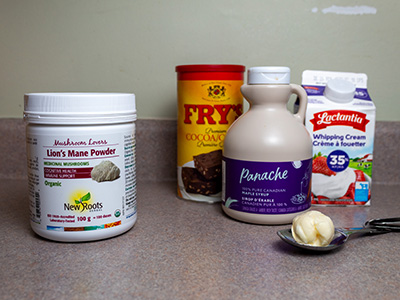 Ingredients
Ingredients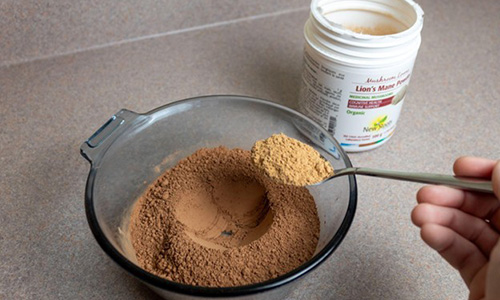
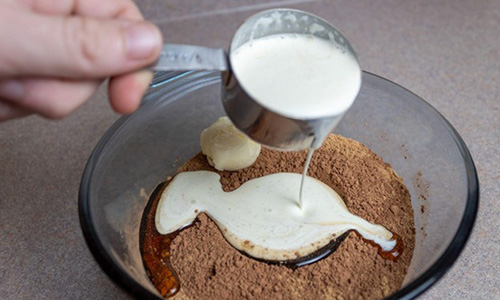


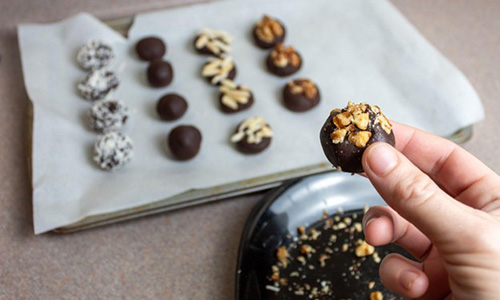

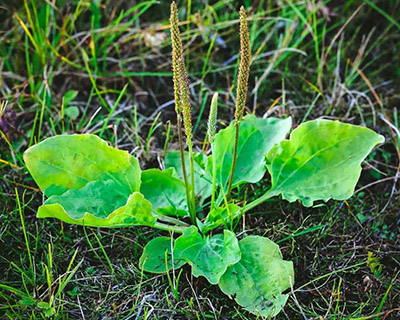



where is it located to free download?????